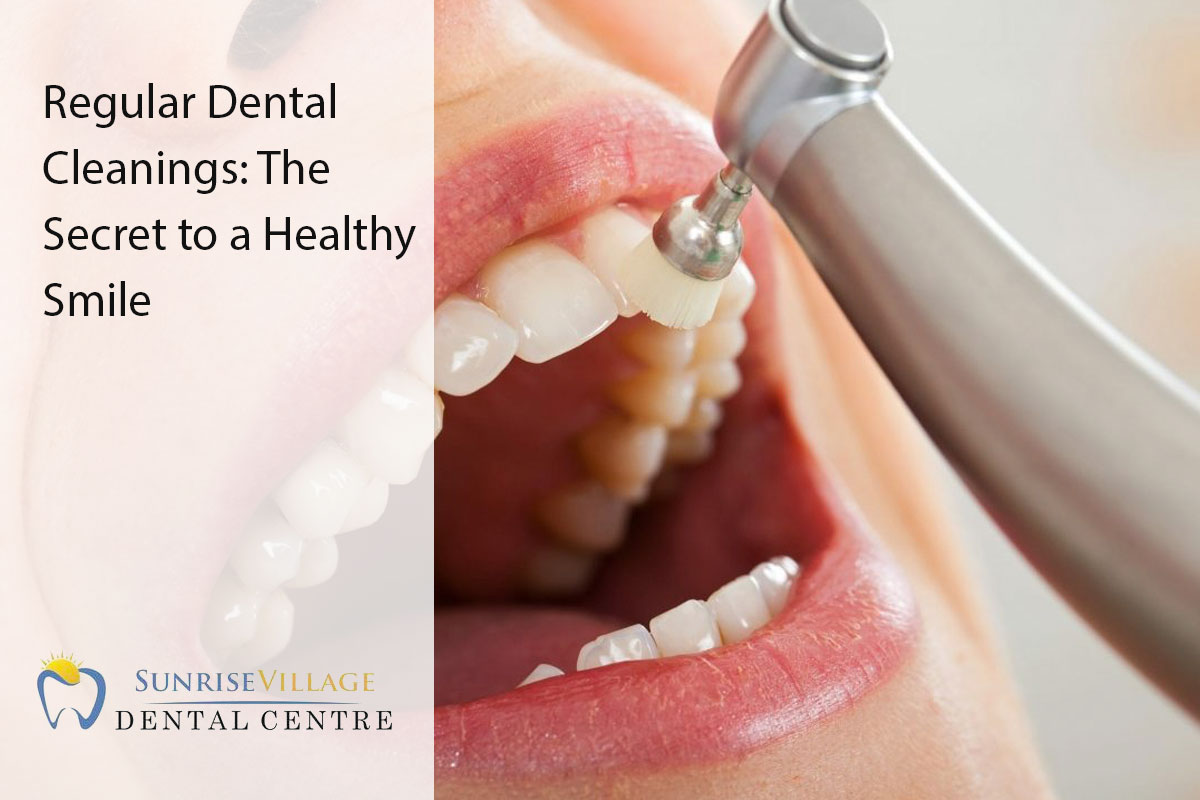
Good oral hygiene isn’t just about brushing and flossing—regular dental cleanings are also important. These cleanings help keep your smile healthy and prevent future dental problems. To maintain a healthy smile, make regular dental cleanings a part of your routine.
What is involved in a dental cleaning
A dental cleaning, also known as prophylaxis, involves several steps to ensure your teeth and gums are thoroughly cleaned and examined. Here’s what typically happens during a dental cleaning:
- Physical Examination: The dental hygienist starts by examining your mouth, checking for any signs of gum disease, cavities, or other oral health issues.
- Scaling: Using specialized tools, the hygienist removes plaque and tartar from the surfaces of your teeth, especially around the gumline. This process is known as scaling.
- Polishing: After scaling, your teeth are polished with a gritty toothpaste and a high-powered electric brush. This helps remove any remaining plaque and stains, leaving your teeth smooth and shiny.
- Flossing: The hygienist will then floss between your teeth to remove any debris and plaque left behind, ensuring your gums are healthy.
- Fluoride Treatment: Depending on your dental needs, you may receive a fluoride treatment to strengthen your tooth enamel and help prevent cavities.
- Examination by the Dentist: Finally, the dentist may perform a more thorough examination of your teeth, gums, and overall oral health. If needed, X-rays may be taken to check for issues not visible during the physical exam.
Common dental issues prevented by regular cleanings
Regular dental cleanings play a crucial role in preventing a variety of common oral health problems. Here are some of the key dental issues that can be effectively addressed and prevented through consistent professional cleanings:
- Gum Disease Prevention: Cleanings remove plaque and tartar, preventing gingivitis and halting the progression of periodontal disease.
- Tooth Decay Prevention: By eliminating harmful substances from your teeth, cleanings help reduce the risk of cavities and tooth decay.
- Oral Cancer Detection: Regular cleanings include screenings for abnormal growths or lesions, allowing for early detection and treatment of oral cancer.
How often should you get a dental cleaning?
Most dental professionals recommend getting a dental cleaning every six months, or twice a year, for optimal oral health. However, this may vary based on individual needs. Some people might need more frequent cleanings if they have gum disease, are prone to cavities, or have other health conditions affecting their oral health.
Tips for maintaining good oral hygiene between cleanings
While regular dental cleanings are key to a healthy smile, maintaining good oral hygiene at home is just as important. Here are some simple tips:
- Brush twice a day: Brush your teeth at least twice daily for two minutes each time using a soft-bristled toothbrush and fluoride toothpaste to remove plaque and food particles.
- Floss daily: Flossing removes plaque and food debris from between your teeth where your toothbrush can’t reach, helping keep your gums healthy.
- Use an antibacterial mouthwash: Rinse with an antibacterial mouthwash to kill harmful bacteria and reduce the risk of gum disease.
- Limit sugary and acidic foods: Reduce your intake of sugary and acidic foods and drinks to protect your tooth enamel and prevent cavities.
Invest in your oral health today
Maintaining a healthy smile is crucial for your well-being, and regular dental cleanings are key. Scheduling cleanings every six months helps prevent gum disease, tooth decay, and oral cancer. These visits remove plaque and tartar, keep your teeth fresh, and enable early detection of issues. Keep your smile confident and healthy by calling Sunrise Village Dental at (604) 253-2433 to book your appointment.
